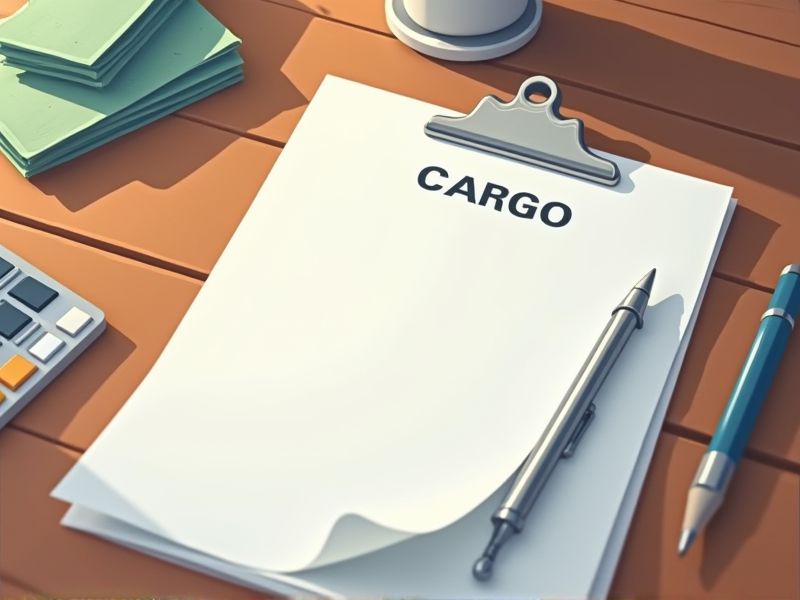
Marine cargo specialists handle the complex logistics of shipping goods across seas, necessitating a profound understanding of maritime laws and safety protocols. Certifications in this field verify expertise in areas such as cargo handling, customs regulations, and risk management, ensuring that specialists can mitigate potential disruptions in the supply chain. Specialized training prepares professionals to address challenges related to hazardous materials and secure global trade compliance. Here are some important certifications you may need for a Marine cargo specialist.
Certified Marine Cargo Specialist (CMCS)
The Certified Marine Cargo Specialist (CMCS) credential enhances expertise in handling complex logistics of marine cargo, leading to improved operational efficiency. Holding a CMCS certification often results in increased credibility, fostering trust among clients and partners in the maritime industry. It also provides comprehensive knowledge of safety regulations and best practices, reducing the risk of costly errors during cargo handling. This certification can propel career advancement opportunities by demonstrating a high level of professionalism and dedication to the field.
International Maritime Dangerous Goods (IMDG) Certification
Marine cargo specialists must obtain International Maritime Dangerous Goods (IMDG) Certification to ensure compliance with global safety regulations governing the transport of hazardous materials by sea. Proper certification reduces the risk of accidents and environmental damage by standardizing the handling and documentation processes. Experts with IMDG Certification can effectively identify and mitigate potential hazards associated with dangerous goods. Certification also enhances trust among maritime stakeholders, facilitating smoother international trade operations.
Marine Cargo Surveyor Certification
Marine Cargo Surveyor Certification ensures specialists have verified expertise in cargo handling, security, and risk management, critical to prevent costly damages or losses. Certification signifies that individuals meet industry standards, enhancing credibility and trustworthiness with clients and employers. Insurers often require certified personnel to assess marine cargo claims, directly influencing insurance coverage outcomes and premium calculations. Global trade regulations and compliance requirements mandate adherence to specific standards, making certification essential for legal and operational effectiveness.
Marine Cargo Insurance Certification
Marine Cargo Insurance Certification provides specialists with a deep understanding of risk management, essential for protecting assets during transit. Understanding insurance terms and coverage options enhances a specialist's ability to advise clients on appropriate policy selections. Certification ensures compliance with international shipping laws and regulations, reducing potential legal liabilities. Mastery of cargo insurance increases a specialist's credibility and marketability, attracting more business opportunities.
Dangerous Goods Regulations (DGR) Certification
Dangerous Goods Regulations (DGR) Certification ensures marine cargo specialists understand how to safely and legally handle hazardous materials, minimizing risk during transport. Familiarity with DGR protocols helps prevent accidents and environmental damage, crucial for maritime operations. Certification enhances compliance with international standards, thus avoiding costly fines and legal issues. It also boosts a specialist's credibility and employability in the competitive shipping industry.
Hazardous Materials (HAZMAT) Certification
Marine cargo specialists often handle sensitive or dangerous goods, requiring extensive knowledge of safety protocols, which HAZMAT certification provides. Handling hazardous materials without proper certification can lead to environmental disasters or legal penalties. Certification ensures specialists are trained in emergency response, minimizing risk during transport. Industry standards and regulations mandate HAZMAT certification to ensure global safety compliance.
Certified Customs Specialist (CCS)
The role of a Certified Customs Specialist (CCS) enhances a Marine Cargo Specialist's ability to navigate complex customs regulations, minimizing clearance delays and ensuring compliance. Their expertise reduces risks associated with misinterpretations of international trade laws. This proficiency facilitates smoother logistical operations and better cost management, enhancing overall cargo efficiency. Employers benefit from the CCS credential as it often translates to competitive advantages in a complex global shipping market.
Certified Supply Chain Professional (CSCP)
A Certified Supply Chain Professional (CSCP) credential enhances a marine cargo specialist's ability to manage complex global logistics networks efficiently. It deepens understanding of supply chain strategies, essential for optimizing marine cargo operations amid volatile market demands. The certification also equips specialists with the latest tools and technologies needed for seamless coordination between multiple stakeholders, minimizing disruptions. As international trade regulations become more stringent, the CSCP provides insights into compliance, mitigating potential operational risks.
International Trade Compliance Certification
International Trade Compliance Certification ensures that marine cargo specialists understand global trade regulations, reducing legal risks. This certification helps specialists efficiently navigate complex customs requirements, leading to smoother trade operations. Proper training in compliance minimizes shipping delays, directly impacting a company's profitability. Organizations value certified specialists due to their ability to enhance operational integrity and trust within the global market.
Global Logistics and Port Operations Certification
A Global Logistics and Port Operations Certification provides marine cargo specialists with essential knowledge of international shipping regulations, enhancing compliance and reducing legal risks. The certification equips specialists with advanced skills in supply chain management, improving efficiency in cargo handling and logistics. By understanding diverse port operation practices, specialists increase their adaptability to various global shipping environments, ensuring smooth operations. The certification distinguishes professionals in a competitive job market, potentially leading to career advancement and increased earning potential.
Summary
When you obtain certifications as a Marine Cargo Specialist, your expertise and credibility in the field significantly increase. This enhancement often leads to better job prospects and potential salary advancements. Employers may also have increased confidence in your ability to handle complex cargo logistics safely and efficiently. Such credentials can open doors to leadership roles within the industry, thus elevating your professional profile.
